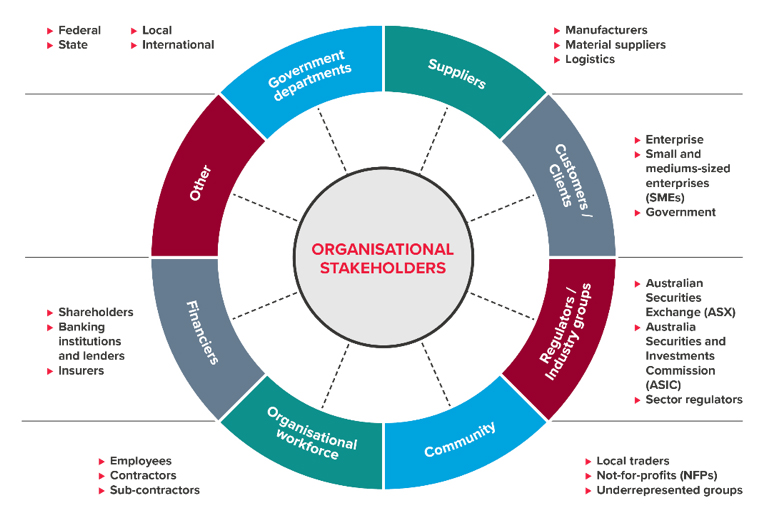
Engaging stakeholders in the ESG process
Business owners need to begin adopting Environmental, Social and Governance reporting sooner rather than later to stay one step ahead of regulators and meet growing stakeholder expectations.

Environmental, Social and Governance (ESG), is increasingly important for organisations in today’s business climate, including businesses of all sizes – both local and international.
The concept is very broad and there is currently no universal categorisation on how to report an organisation’s ESG performance.
BDO Associate Director Josh Carver says SME business owners shouldn’t be fooled into waiting for regulators to catch up with growing stakeholder expectations.
“SMEs should take the opportunity to begin adopting a level of ESG reporting now,” he says.
“Incorporating these elements gets them on the front foot with access to new and emerging markets, access to better lending conditions or interest rates and differentiate themselves in a highly competitive talent market.
“As suppliers to larger corporations, SMEs will also find increased demand for ESG reporting as part of supplier agreements – which we’re already seeing in some cases.”
The demand for ESG reporting by various stakeholders has been steadily growing and shows no signs of slowing down.
Sustainability and transparency are increasingly associated with successful financial performance and value creation and have long-term investor appeal.
Carver says the most common questions he receives are about where to start, and what competitors of a similar size are doing.
“The best starting point for any organisation looking to initiate ESG reporting is to look at what they’re already doing – many don’t realise they are already conducting ESG activities, they’re just not formally documented into a report for relevant stakeholders,” he says.

Every organisation has a myriad of stakeholders that influence the way it operates.
When it comes to ESG efforts, it’s important to optimise stakeholder engagement throughout the process to identify high-priority and high-impact areas to focus on.
Stakeholders include your:
- People
- Communities
- Customers/clients
- Suppliers
- Regulators and industry groups
- Governments
- Financers
Your stakeholders’ opinions matter. Organisations working toward improving their sustainability and transparency efforts should prioritise engagement with those stakeholders who have the greatest influence and interest in their ESG processes. They are who will help drive efforts toward more sustainable operations. Without stakeholder engagement, managing risk around access to market, capital and talent is impossible.
Organisations can determine what matters most to their stakeholders by asking them specific questions like:
- How important is emissions reduction to you?
- How important is waste management to you?
- How important is water consumption to you?
Questions should also provide views on community engagement, including:
- How important are efforts regarding diversity and inclusion?
- How important are efforts regarding sustainability across your supply chain?
Once you understand the specific views of your organisation’s stakeholders and engagement across the entire ESG ecosystem, your leadership team can manage feedback and start addressing identified needs. The best way to prioritise your stakeholders is by considering their feedback and categorising them in terms of influence and interest in ESG efforts.
Tier 1 stakeholders:
Hold significant influence and interest in the organisation’s sustainability operations. This group should be high-touch and high-priority, with one-on-one or small group meetings and frequent communication.
Tier 2 stakeholders:
This group’s opinions and guidance matter, but they don’t have as heavy an impact. Their feedback should be given great consideration, but they don’t require the same amount of time and attention as Tier 1 stakeholders.
Tier 3 stakeholders:
These stakeholders are interested in your organisation and efforts but hold less influence. While their opinions should be taken into consideration, they don’t significantly impact the prioritisation of your operations.
Tier 4 stakeholders:
This group has moderate influence and moderate interest. They simply require updates and information about the ESG process along the way.
Remember, your organisation can’t be all things to all people – there are far too many stakeholders to engage equally and fully with. Identify what is important to your organisation, then identify what is important to your stakeholders. Wherever there’s overlap, that’s where you find your high-priority next steps.
BDO is offering a series of ESG webinars focused on what you need to know about key ESG topics and concepts to fulfil your duties as an organisational leader or director.
Learn more about the series, watch previous sessions and register to attend at www.bdo.com.au.
This article is a version of one first published at bdo.com.au on April 19, 2022.




